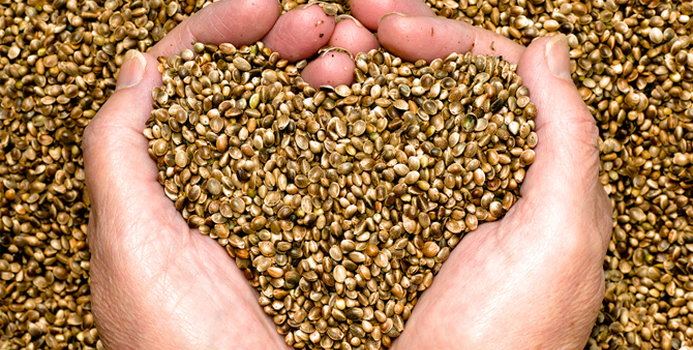Eating polyunsaturated fat in moderation instead of saturated and trans fats benefits your health by reducing bad cholesterol levels and your heart disease risk, notes the American Heart Association. Foods rich in polyunsaturated fats also contain essential fatty acids, including omega-3 and omega-6 fats, which your body requires daily because it cannot produce itself. Choosing a variety of foods rich in polyunsaturated fat helps you meet daily essential fatty acid requirements and keeps your heart healthy.
Soy Products
Because soy is rich in omega-3 fatty acid alpha-linolenic acid, or ALA, soy products are excellent sources of polyunsaturated fats. Examples include tofu, tempeh, soy milk, soybeans, soy nuts and soybean oil. Because soybean oil is the most concentrated source of fat from soybeans, it contains the highest amount of polyunsaturated fatty acids. To incorporate soy into your diet, make an omega-3-rich protein smoothie by blending soy milk, nut butter and a banana together with ice. Add tofu to a vegetable stir fry, top salads with tempeh and soy nuts, eat edamame as an appetizer or cook with soybean oil.
Nuts and Seeds
Most nuts and seeds provide you with a combination of heart-healthy mono- and polyunsaturated fats and are rich in protein and dietary fiber. Nuts and seeds especially high in polyunsaturated fats -- including omega-3 fatty acid ALA -- include walnuts, pumpkin seeds and flaxseeds. A review published in 2014 in the American Journal of Clinical Nutrition found that the more nuts you eat, the lower your risk of developing ischemic heart disease and diabetes. Though nuts are heart-healthy, they are also high in calories, so eat them in moderation as part of a well-balanced meal plan.
Plant-Based Oils
Soybean oil isn't the only plant-based oil rich in polyunsaturated fat. Corn, sunflower, safflower, pumpkin seed, canola, walnut, hemp and flaxseed oils contain large amounts of essential fatty acids. To incorporate polyunsaturated fat into your diet, use these oils when cooking or add them to cold salads, salad dressings, dips, marinades, sauces or soy-based protein smoothies. The Cleveland Clinic notes that flaxseed oil is best used without heat in dressings, dips and marinades; hemp, soybean, pumpkin seed, corn and walnut oils are best suited for light sautéing, sauces and low-heat baking; canola oil works well for baking, stir frying and oven cooking; and sunflower oil can be used for browning and searing.
Fish and Fish Oil
Fish oil in fatty fish and fish oil supplements is high in omega-3 fatty acids, and promotes heart health. Salmon, trout, herring, sardines, anchovies, tuna, sturgeon, bluefish and mullet are rich in omega-3 fats, according to MedlinePlus. The American Heart Association recommends adults eat two 3.5-ounce baked or grilled portions of omega-3-rich fish weekly to maximize heart health. If you're pregnant or nursing, talk with your doctor about the amount and type of fish that is safe for you to consume. Purified fish oil is a concentrated form of omega-3 polyunsaturated fats, beneficial for adults who don't eat much fish and free from harmful levels of contaminants -- such as mercury. MedlinePlus suggests talking with your doctor before taking fish oil supplements, but reports that fish oil is likely safe for most adults in doses of up to 3 grams daily.

An experienced health, nutrition and fitness writer, Erin Coleman is a registered and licensed dietitian and holds a dietetics degree from the University of Wisconsin-Madison. She also has worked as a clinical dietitian and health educator in outpatient settings. Erin's work is published on popular health websites, such as TheNest.com and JillianMichaels.com



